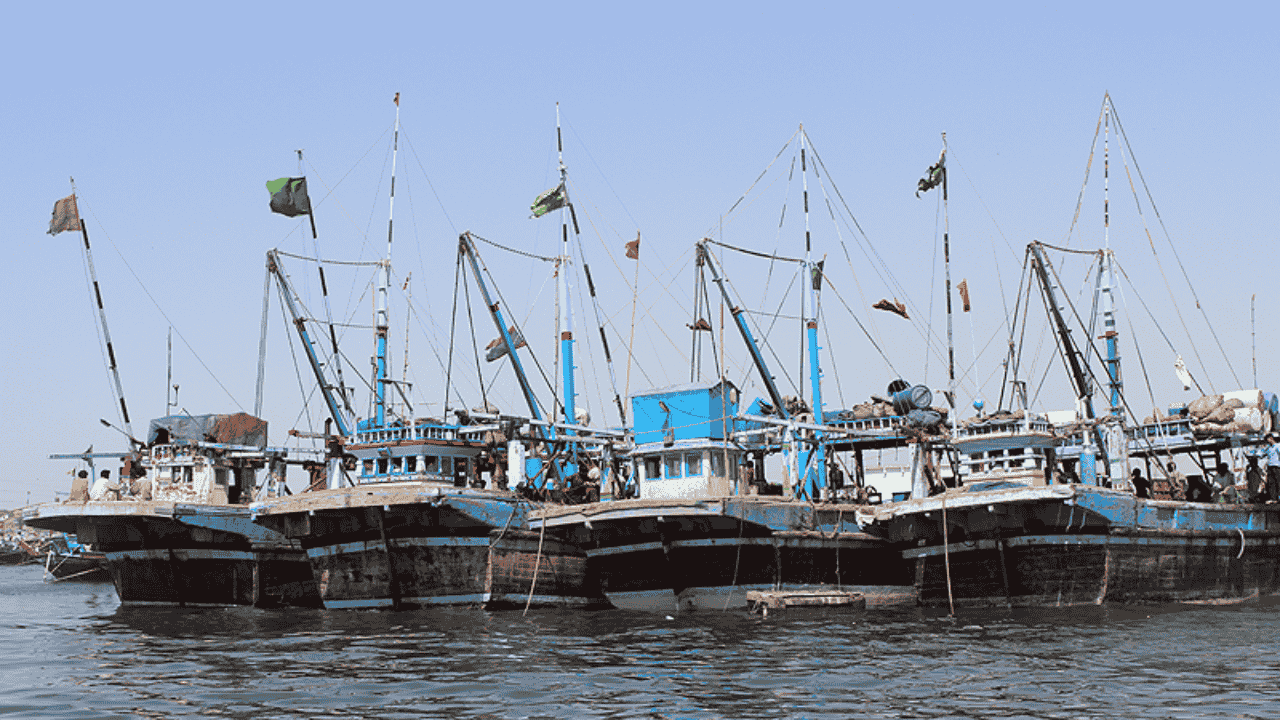By Ahmed Khan Malik
KARACHI— The fisheries sector of Sindh needs revamping by replacing the outdated fishing practices and obsolete infrastructure to fully capitalize on its true potential, reports WealthPK.
Sindh’s fisheries sector holds immense potential to contribute to Pakistan’s economy, especially in terms of exports.
With a coastline stretching over 350 kilometers and an abundance of both marine and inland water resources, this southeastern province of Pakistan is ideally positioned to become a major player in the global seafood market.
Challenges Hindering Growth of Sindh Fisheries
However, despite its natural advantages, the province has yet to fully capitalize on this potential due to the outdated practices, inadequate infrastructure, and lack of strategic investment, people associated with the fisheries sector told WealthPK.
They said Sindh contributes significantly to Pakistan’s fish production, with key fishing areas like Karachi, Thatta, and Badin serving as major hubs for marine and inland fisheries.
Pakistan’s Seafood Export Markets and Limitations
Pakistan exports a variety of seafood products — primarily fish, shrimp, and crabs — to the markets in China, the UAE, and the EU. Yet, the volume and value of these exports remain far below the potential.
Estimates suggest that the country could double or even triple its seafood exports if systemic reforms are introduced — many of which must begin in Sindh.
Outdated Fishing Techniques Hurting Sustainability
“One of the most pressing issues is the lack of modern fishing techniques. Many fishermen still rely on traditional methods, which are inefficient and often harmful to the marine ecosystems,” said Sultan Khan, Secretary of Karachi Fisheries Association, while talking to WealthPK.
Furthermore, lack of cold storage and processing facilities results in significant post-catch losses, severely affecting both quality and profitability, he added.
Another challenge is poor compliance with the international quality standards. The EU’s bans on Pakistani seafood in the past were due to the concerns over the hygiene and handling practices.
“Without proper training, certifications, and enforcement of safety regulations, Sindh’s fisheries cannot consistently meet the demand of high-end international markets,” he said.
Environmental Issues and Overfishing in Sindh
Sultan noted that pollution and overfishing have also strained the natural stock, leading to a decline in catch volumes over the years. Moreover, inland fisheries — such as those in Manchar Lake and Keenjhar Lake — face threats from industrial waste, reduced water flows, and habitat degradation.
Modernization Needed to Revive Sindh Fisheries
To revitalize the sector, a comprehensive overhaul is needed, said fisheries expert Siraj Naqvi. He noted that the first and foremost thing to do was to modernize the equipment by providing the fishermen with modern boats, sonar equipment, and sustainable fishing gear.
Regarding infrastructure development, he emphasized building cold storage units, fish processing plants, and modern auction halls as well as local fishermen training in sustainable practices, safety standards, and value addition techniques.
He also urged policy support by enforcing fishing quotas, preventing illegal trawling, implementing traceability systems and encouraging investment from private players to introduce new technologies and expand export networks.
Time to Act for Sindh’s Blue Economy
With right reforms, he believed Sindh’s fisheries sector could become a powerhouse for Pakistan’s seafood exports.
He said investing in modernization, training, and environmental protection will not only boost the economy but also ensure long-term sustainability for the communities depending on fishing for their livelihoods.
Now is the time for policymakers and stakeholders to recognize this potential and act decisively to transform the sector, he stressed.

